Do I have to go to the hospital for various checkup programs? Why?
When you go to the hospital, you may undergo a variety of tests, and sometimes it happens that the doctor, after doing a round of tests, still tells you that he/she "doesn't know what kind of disease you have at the moment". In other words, the diagnosis cannot be confirmed yet. The patient may think, "Have I done all these tests for nothing, and is the hospital trying to cheat me out of money?
Don't rule it out!
For example, some hospitals still have a commission on billing, and some clinics determine the amount of subsidy to be paid to doctors on the basis of the number of tests prescribed. These are all behaviors that a conscientious doctor would find objectionable, and rightly so, and would be spurned by patients.
But after all is said and done, people are still helpless when they go to the hospital because they have no choice. As one netizen often leaves a comment saying, "Patients are like meat on a slab, left to be cut up by doctors."
Complaining won't solve the problem. Dr. Long would like to talk about this issue from the perspective of the individual, the patient, and the hospital.

The doctor's perspective
From a doctor's point of view, unless they are extremely self-serving, most doctors are patient-centered and "tailor-made" to examine the patient.
For example, now during the new coronavirus outbreak, the focus of concern is on the new coronavirus infection, and patients with fever will be guided by a medical director to attend e.g. a fever clinic.
A common fever can be both infectious and non-infectious, and the first thing a doctor will want to rule out is an infectious factor. The patient will be given tests that involve infection-related tests, and this is done by first giving the patient a routine examination to determine the general direction of the disease.
It is like repairing a television set, whether it is unable to start, or the screen display problems, or no sound, the doctor's brain has a "mind map" to guide the doctor to do the appropriate checks to confirm the presumption in mind.
Some time ago, a febrile young male with a thin-looking appearance complained of, in addition to the fever, previous mouth ulcers for some time, a rash with joint pain, headache, night sweats, and muscle pain.
From the above manifestations, it looks like a viral infection, but there are many different kinds of viruses, and each of them has some similar manifestations and some differences.
The most common tests are routine blood tests and C-reactive protein. From the content of the patient's communication with the doctor, it can be determined that the patient has a history of impure sex, thus speculating whether there is a possibility of AIDS.
Eventually, the test was found to be positive for HIV. But even then, the tests done to rule out bacterial infection are considered "wasted".

Patient's perspective
From the patient's point of view, the foothold of going to the hospital is to diagnose what the disease is and then treat it with the appropriate medication. If these two purposes are separated, do not consider the diagnosis of what disease, just prescribe drugs, this for the patient. There is a possibility that the medicine prescribed is not the right one, which will delay the condition and also waste money and time.
It is much more cost-effective for the patient to accurately diagnose the disease through tests and the determination of symptoms, rather than prescribing medication as soon as it comes in. But the patient may ask the doctor to accurately select valuable tests, and this is a little harder for the doctor to do.
Doctors are also limited by objective conditions, their existing knowledge base may not be sufficient, and medical equipment and other conditions have limitations, so it is impossible to be so precise that the tests chosen are faulty. There are some tests that are perfectly normal and seem to be unnecessary, but in fact they can be used to rule out a diagnosis.
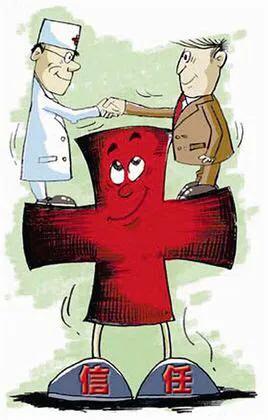
Hospital perspective
From the hospital's point of view, while there may be financial considerations in choosing tests, the aim is after all to serve the patients. With the ever-changing doctor-patient relationship, one thing that may be overlooked is that many tests may be an important means of circumventing disputes.
In human terms, in the words of one patient, it's not your fault if there's no problem with the test, but if there is a problem and you didn't check it then it's the doctor's fault.
In conclusion, not all people who go to the hospital will necessarily undergo all kinds of tests. No doctor does tests for the sake of tests, and all of them actually aim at solving the patient's problems in a better way. Why would a doctor go through all the trouble of doing something that is not pleasing to the eye if the patient's problem can be solved in a simple way!

I am a clinician who loves science, seeing patients, consulting, answering questions, solving puzzles, popularizing medical knowledge, and experiencing the power of warm words in the midst of my hurried clinical work!
Feel free to like, comment, retweet and favorite this article if it was useful to you. For more medical knowledge, stay tuned to Dr. Long!
Many people wonder why they must undergo all kinds of tests and spend so much money before they can give a diagnosis when they go to the hospital, and why they cannot give a diagnosis even though they have spent so much money and done so many tests sometimes.
Is this a hospital catfight? Why is it that in ancient times there were no tests and people didn't see the doctor anyway?
As a doctor, I do not dare to carry on with you! I hope that through my explanation, you will be able to understand more about the purpose of doing various tests in the hospital and better understand the purpose of doing various tests.
Almost all of us go to the hospital when we are not feeling well, or when we suspect that we have something wrong with us. We first tell the doctor about our discomfort, the main discomfort in what medical students call the chief complaint. These discomforts are only the manifestations of the patient himself. On the one hand, even if it is the same disease, the manifestations are not exactly the same for everyone, and on the other hand, even if it is the same manifestation, the same symptom, there may be many different reasons.
Therefore, no one can give a very accurate diagnosis based on mere symptoms, without a diagnosis, it means that the cause of the disease has not been found, and if the cause cannot be found, it certainly cannot be treated. Without treatment, it is naturally impossible to contact your disease. After the patient describes the symptoms, the doctor will make a comprehensive judgment, based on his accumulated knowledge, what kind of disease it could be.
Then, relevant tests must be performed to give an accurate diagnosis based on the results.
I. Examples with chest pain

For example, if a person has chest pain and arrives at the hospital, the chest pain itself is divided into many natures, such as stabbing pain, stuffy pain, distension, pain after breathing, pain on pressure, and so on. The doctor will give a preliminary judgment based on the nature of the chest pain, duration, relief methods, accompanying symptoms and so on. For example, it is suspected that the chest pain is caused by cardiovascular stenosis, angina pectoris. Then it is necessary to do an electrocardiogram, according to the electrocardiogram may be able to initially determine whether it is or is not angina; if the electrocardiogram evidence is not sufficient, it is also necessary to do myocardial enzymes, troponin, coronary artery CT or coronary artery angiography and other related tests, and then finally to confirm the diagnosis.
Even if a person's angina is very typical and we have a good eight or nine percent certainty, we can't say that a patient is angina or myocardial infarction based solely on chest pain symptoms because angina and myocardial infarction treatments are not the same. Angina pectoris is mainly medication, myocardial infarction also need thrombolysis or stent, are delayed can not afford. Therefore, the relevant examination is very important, there is no accurate diagnosis without examination, and without accurate diagnosis, there is no accurate treatment.
我们还说胸痛,胸痛有十几种疾病,并不是只是心绞痛或心肌梗死,还可能是主动脉夹层、肺栓塞、气胸、肺癌、食管疾病、胸膜疾病、肺部疾病等等等等,我们没有办法简单的根据胸痛,就给出一个准确的诊断。
Therefore, even the most skillful doctors need the cooperation of relevant tests before most diseases can be accurately diagnosed and treated.
II. Examples with colds

Some people have said that major illnesses definitely require tests, so why do you have to have blood drawn when you go to the hospital with a cold?
Maybe you have a cold, drink plenty of water at home, pay attention to rest, or buy some medicine yourself, most people can get well. However, when you go to the hospital, as a doctor, you have to analyze these problems more comprehensively and responsibly. Colds are mostly caused by viruses, but it is impossible to tell if they are caused by viruses without taking blood tests. Colds are usually harmless, but what if it's the flu? If the cold is a fly, the flu is a tiger, so further tests are needed to determine if the cold has further aggravated the elderly's pneumonia, heart failure, myocarditis, etc. Under the premise of combining the patient's symptoms, relevant tests may be needed to make a clear diagnosis.
To put it bluntly, it's all right not to check, everyone is happy, but if the doctor didn't check because of a person's visit to the doctor, that is, because he didn't check the results of a big problem, then this person will definitely hold the doctor accountable, why he didn't check for him at that time, there is no objective evidence without checking, there is no objective evidence, based on his own mouth alone, who can say it clearly?
Go to the hospital to see a doctor, all kinds of related examination purpose is very simple, is as soon as possible clear diagnosis, only clear diagnosis, can be treated. In the absence of a clear diagnosis, said can be cured, all fooled!
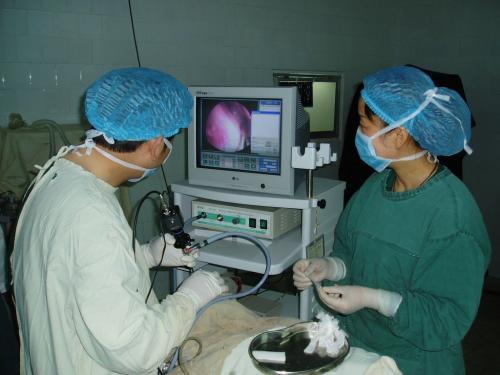
Finally, change a role, not as a doctor, as a common people, to raise the bar: you do not feel well, to the hospital, to find a doctor did not do anything to check, to give you medicine, or surgery. Do you dare to see a doctor in such a hospital? If nothing goes wrong, everyone is happy, but if something goes wrong, can you not hold the doctor responsible?
If you really don't want to be examined and trust doctors who don't do tests very much, you can go to those doctors as well. Of course it's not the doctor's place to say this, but the words trough are not the same. Think about it, isn't that the truth?
Of course, then again, should do the test we do, strictly grasp the indications, should not do the test do not do!
As a doctor who has practiced medicine for 33 years and a hospital administrator who has been engaged in hospital management for more than a decade and has handled hundreds of medical disputes, I would like to answer this question from the following aspects.
1, if it is to the outpatient clinic to see the doctor, the doctor will only according to the needs of the condition to prescribe the necessary tests, such as consider you are chest disease, chest film or chest CT is essential, incidentally also do with the disease-related tests, such as blood routine, etc., generally will not be indiscriminate to do other tests. Unless this hospital has given the doctor a revenue-generating target. This kind of situation is prohibited by the "nine prohibitions" of the National Health Commission.
2. If the patient is hospitalized, the situation will be a little more complicated. According to the regulations, routine blood test, routine urine test, routine stool test, electrocardiogram, chest X-ray, liver function test and kidney function test are mandatory items, because these tests roughly reflect the patient's physical condition, but they do not necessarily help in the diagnosis. In order to find the cause of the disease and make a clear diagnosis, doctors will also prescribe some special tests, such as suspicion of lung cancer, blood sampling for cancer markers, chest CT and enhanced CT, and even bronchoscopy. Sometimes, in order to make a differential diagnosis, it is also necessary to do some other tests, such as anti-tuberculosis antibodies. Along the way, it gives the impression that there are quite a lot of tests and the cost is not expensive, so it is no wonder that some people have doubts.
3. Tests for AIDS, syphilis and hepatitis C are also essential for any patient preparing for surgery. It doesn't matter if you are a newborn or a ninety-year-old. The purpose is twofold:First, to avoid cross-infection in the hospital. This is because newborns and ninety year olds are also at risk of contracting these diseases in some way. The second is to prevent future medical disputes, if one day a patient is discharged from the hospital because of the above diseases to the door, the hospital will be difficult to defend, jump to the Yellow River can not be washed.
4. Due to the deterioration of the medical environment in the past decade, in order to prevent the occurrence of medical disputes, some doctors have adopted the precautionary protection measure of "it is better to kill a thousand by mistake than to let one go", and they do everything they can in all disease-related examinations, so as to prevent the occurrence of medical disputes from being seized by the pigtails of the omission of a diagnosis.
5. Because of the lack of government investment in hospitals in most parts of the country, hospitals, in order to survive, may adopt incentives in disguise to stimulate and encourage doctors to prescribe more tests, because hospitals have higher profit margins on all tests, which are the main means of generating income for hospitals. So it is not surprising that hospitals have more tests. This also requires the Government to increase its investment in hospitals before it can do so.
I don't know if I've made the above five points clear.
Yesterday also good old man, get up in the morning on one side of the hands and feet are not sharp, quickly help to the community health center for medical treatment, experienced general practitioners a little questioning, physical examination, roughly judged to be a stroke, and there is no CT and magnetic resonance, all the checkups for people to do is a blind delay in the effort to hurry up to the conditions of the hospital checkups, diagnosis and treatment on the right.
Surgical patients who have been discharged from the hospital go to an outpatient clinic to see a doctor to check the condition of their wounds, which makes it unnecessary to check for any additional items.
Older patients, such as those with high blood pressure, who come to the clinic for follow-up appointments and prescriptions, usually don't need to undergo any itemized tests.
So.What are the circumstances under which a visit to the doctor requires a variety of items to be tested?
- Emergency medical treatment often requires ancillary tests to help clarify the diagnosis. However, minor injuries and illnesses, such as being stung by a wild bee on the arm, being burned somewhere on the body, or accidentally getting a small cut on the hand, can be handled directly in the outpatient clinic, and there is no need to check for any items.
- When you visit a doctor for a new condition, it is often necessary to arrange for relevant ancillary tests in order to confirm the diagnosis.
- Prior tests revealed abnormal lab markers or imaging but did not confirm the diagnosis, and went for follow-up and reexamination as prescribed.
- In order to understand the progression of the disease or the control of the disease, it is necessary to review the relevant items and judge them by comparison.
I am Dr. Kang, who is passionate about the promotion and popularization of health and health knowledge. Thank you for your attention, friends!
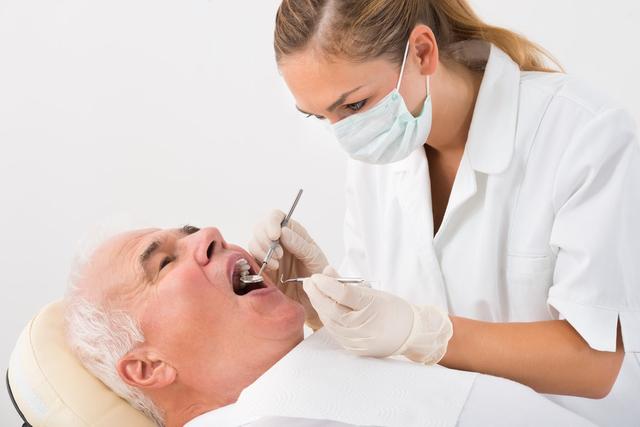
Image from the web
To see a doctor, you have to check. But check more, on the one hand is too much trouble, on the other hand is afraid of spending money. The main reason is that it hurts money. No one's money comes from the wind, and no one wants to spend all their hard-earned money in the hospital.
I remember that time when an old man in my family got sick and the doctor asked for all kinds of tests. Blood test, urine test, stool test, ultrasound, ct and so on.
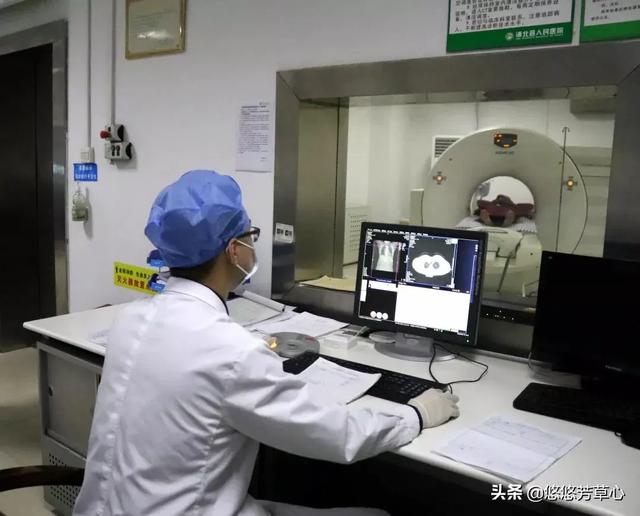
For the heart item, an EKG was done, as well as an ultrasound, and I thought that was the end of the checkup.
But that's not all. There are still exercise flats to be done.
What is an exercise tablet? Not sure. Had to accompany the old man to get checked out.
Turns out, it's a quick walk on the treadmill with a heart monitor. It annoyed the old man to no end, and he thought the doctor was being redundant.
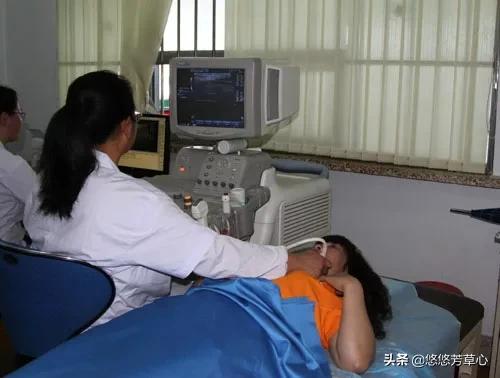
So, complained in the ward. Coincidentally, the same ward of patients, the doctor asked her to blow up balloons, blowing up one after another, causing everyone to burst into laughter. This time it was good, and everyone forgot about the worries of being sick for a while.
Later, I wrote about it as a micro-headline, and a doctor friend read the comments and said that having the exercise plate done was old age, and that the heart's capacity had to be properly assessed. As for blowing up balloons, it's exercising lung capacity.
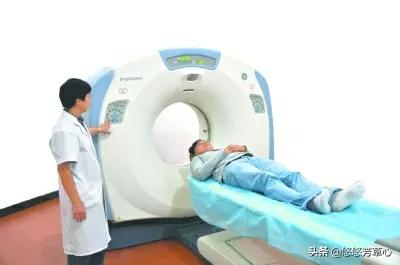
Oh, yeah! I see. As a doctor, you have to know the patient's physical condition in order to schedule an operation. Necessary tests have to be done. Otherwise, if something goes wrong, it's not a small matter. Doctors have to be responsible for their patients.
As for whether it is excessive examination, it is hard to say, after all, we are not doctors. When you enter the hospital, just listen to the doctor!
Generally speaking, smart and experienced doctors don't need to prescribe a lot of tests to see a patient, they often just go through theLook, smell, touch, knock, listen.And other means can you suffer from the disease to know a general, more masters of the masters usually as long as you open your mouth, a hand, a throw feet, etc. can know what you suffer from, and borrowed for a variety of auxiliary examination is only to confirm the diagnosis or identified in other diseases.

Seeing a doctor is like solving a crime.A good doctor not only has to develop the good habit of good observation, but also has to make judgment through long-term accumulation of rich knowledge and experience, and by virtue of his superb comprehensive analytical ability, if he does not have these words, then more tests are useless. In factIt is also here that a doctor's greatest value is manifested!
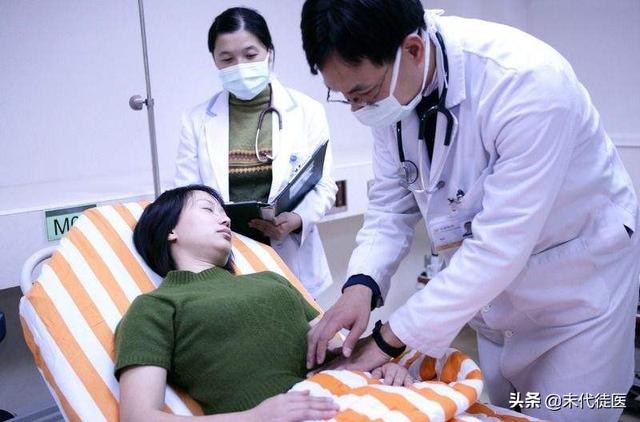
With the highly developed science and technology, such as some advanced testing equipment such as automated blood biochemistry analyzers, CT, MRI, etc., a large number of popularity, many places have specialized professional testing and inspection institutions such as spring like groundbreaking, and engaged in testing and inspection of personnel are not necessarily to study medicine, which seems to provide us with a new way of thinking.Is it possible to separate "medical" and "prosecution"?Patients make choices based on the advice of their doctors and their knowledge of health issues:Patients have the right to choose whether or not they want to undergo relevant screening programsBecause a lot of tests are a waste of money. Because a lot of tests are a waste of money, not to mention that they are not only ineffective for the patient, but also cause pain and injury to the patient!
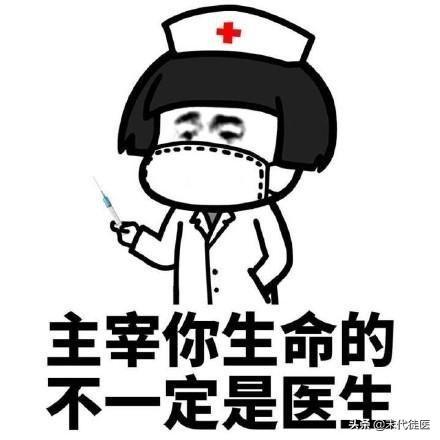
Modern medicine is evidence-based medicine, but also evidence-based medicine! Evidence-based medicine refers to the standards, paths and guidelines that must be followed in the treatment of disease, only after a large sample of clinically proven effective methods and means to obtain the recognition and support of the academic community, and can be put into practice into the clinic and applied to patients; evidence-based medicine refers to the principles that must be followed in the diagnosis of disease, clinicians must have objective indicators of the diagnosis of the data must be supported by, must be in line with the corresponding Clear evidence, which is not only required by medicine, but also required by law and required by social development! When a doctor makes a clinical diagnosis, he or she must obtain information about the patient through the relevant instruments and equipment! This is why doctors must comply with examinations! Although in most cases, doctors are able to make basic judgments about diseases, such basic judgments, which lack a basis, are legally invalid!
Go to Baidu for medical treatment? Nonsense!
In fact, it is right to leave your life and health to the professional doctors in regular hospitals. Who should I listen to in the hospital? Definitely listen to the doctor! May I ask, which doctor to harm you? Western clinical, need to auxiliary functions of the department, the need for advanced equipment to assist in diagnosis and treatment, which is why we need to check.
With a toothache, a dental radiograph is not uncommon. The blood test and electrocardiogram are not excessive, are they? Acute myocardial infarction is also the only manifestation of toothache, and the ECG is also to save lives.
Dizziness and headaches. It is not possible to save a head CT or RMI test, which would be costly, with a checklist costing hundreds or thousands of dollars. Brain hemorrhage is an active process, head trauma begins with no abnormalities on the cranial CT, and over time, the condition worsens and a repeat cranial CT is performed to confirm the brain hemorrhage. Surgical treatment with the amount and location of bleeding provided by the CT also saves lives.
A small cold, everyone crowded to the provincial tertiary hospitals, not their own life is worth, or show rich too rich? In the United States, 80,000 people died of colds. Colds not only need to check the blood routine, but also check the electrocardiogram, cardiac function cardiac enzymes. Of course, it will be fine. Before you go to the tertiary hospitals, you have already looked at the grassroots ah.
A terminal cancer patient whose family says they'd give their family's money to save him. Endotracheal intubation, ventilator maintenance, cardiac monitoring ...... medical costs are high, doctors and nurses resuscitation fees on tens of dollars. People and money the family a few signatures to confirm, but bites back: doctors over-treatment!
Give check, spend money; not give auxiliary examination, leaving a gap to the sick family lawsuit ah? Doctors are the people who want you to live the most, life and health just once, right to the doctor pit once!
When I saw the title, a not-so-appropriate analogy suddenly flashed through my mind - must we order a whole book of dishes when we go to a restaurant? Of course not, we definitely order specialties, favorite dishes or delicious dishes.

Going to the hospital to see a doctor is far from going to the restaurant to order food so cozy and free, although the patient is God, but most of their own body knows nothing about the situation, not to mention the right to choose the disease and treatment. At this time, the doctor is like Sherlock Holmes, comprehensive analysis of the patient's clinical manifestations and related examination results, cocooning, so that the facts to the surface, a clear diagnosis of the disease, targeted treatment, and then follow up regularly, ask the patient's condition changes, review the examination and laboratory tests, in order to dynamically understand the improvement of the disease.

So, why do doctors now give the general public the impression that "it takes five minutes to see a doctor, but two hours to queue up", and why do they keep doing examinations and laboratory tests?
We should all have this experience, the more big and good hospitals, the more patients, the longer the queue, the more famous doctors, the more difficult to hang up the number, or even difficult to find a number. So two years ago, many large hospitals have appeared "scalpers", specifically responsible for selling the number of famous doctors. In fact, the existence of many social phenomena that "reasonable". Because China's medical resources at present, like education, the economy, there are obvious geographical differences, high-quality medical resources are concentrated in large cities, and in a city, good medical resources are often concentrated in large hospitals. Medical treatment belongs to the immediate needs of the people get sick, all hope to get the best means of treatment, after all, many diseases treatment time window is very short, miss the best time to treat the consequences may be unimaginable. At this point, people will do everything possible to compete for a small percentage of quality medical resources (this is a bit like the feeling of grabbing the school district housing), so the people appeared in long lines to register, see a doctor's scene, and even gave rise to the "number of traffickers" industry.

Purchase site
However, at present, doctors in public hospitals have limited energy, not only need to manage patients in the wards, but also to take care of patients in outpatient clinics, so many directors of outpatient clinics will set a ceiling on the number of patients. Even so, the doctor's outpatient pressure is still very large, many doctors need to see dozens of patients in a few hours a morning, come to the follow-up patients are better, thought their situation doctors have a basic understanding. And new patients, doctors often know nothing about their situation, how to be able to accurately their condition in the shortest possible time, relying solely on the history of the inquiry is not enough, and then a less appropriate example, the police can not rely on the suspect's side of the story to solve the case, certainly need to collect evidence. The same applies to medical consultation. Doctors need to conduct relevant examinations and laboratory tests according to the patient's description in a targeted manner to verify whether the patient's description is consistent with the disease. If out-patient examination is not enough, these patients may need to be hospitalized for further examination and treatment.
In addition, there is another aspect of doing examinations and tests that serves to make the already large number of patients flow, with some of the patients going for examinations and those in the queue at the back being able to go into the consultation room to have exchanges with the doctor, and then this group of patients subsequently going for examinations as well, and those who have been examined before bringing the results of their examinations back to the doctor. This not only allows patients to reduce waiting time, but also allows more patients to receive medical services within a limited time.
Of course, all levels of health departments have carried out various reforms to optimize medical services, but after all, there are too many patients, and it is difficult to cope with such a huge pressure on medical services with so many large hospitals alone, so the tiered diagnosis and treatment and family doctor system is being gradually implemented in various places, just as in foreign countries, where each family or even each individual has a family doctor, and the first thing to do is to be looked at by the family doctor when you are sick, and if you can't look at the family doctor, the family doctor will transfer the patient to the next level of hospital, and so on. If the family doctor cannot see the patient, the family doctor will refer the patient to the upper level hospital, and so on. Such a system can fully optimize health care resources, so that patients can receive better quality health care services and the work pressure of health care workers can be reduced.
It seems to be a bit off-topic. Looking back at this topic, it is not true that the more tests done in the hospital, the better, but the more targeted the better. This is in fact a very test of the doctor's clinical level, sometimes headaches do not necessarily come from the head, foot pain does not necessarily come from the foot, which requires doctors to have a solid foundation in order to make a more accurate judgment, prescribe a more meaningful examination, so that the patient can spend less money, less travel, less waste of medical resources.
In the current medical environment system, to do a variety of tests is the only test of the doctor's diagnosis of the patient is clear. Turn the time machine back to the domestic medical system thirty years ago, the social population of the medical industry is relatively high sense of identity, to the hospital, all listen to the doctor, let do what to do, but most of the diagnostic tests were not so clear at that time, are the boss of the experience of the summary. But now the medical environment, one is to accelerate the efficiency of the patient's diagnosis, so need to use a variety of tests to help diagnosis, and also to prevent future conflicts between doctors and patients, so that all diagnosis and treatment are based on evidence, evidence to follow.
This question and answer are from the site users, does not represent the position of the site, such as infringement, please contact the administrator to delete.